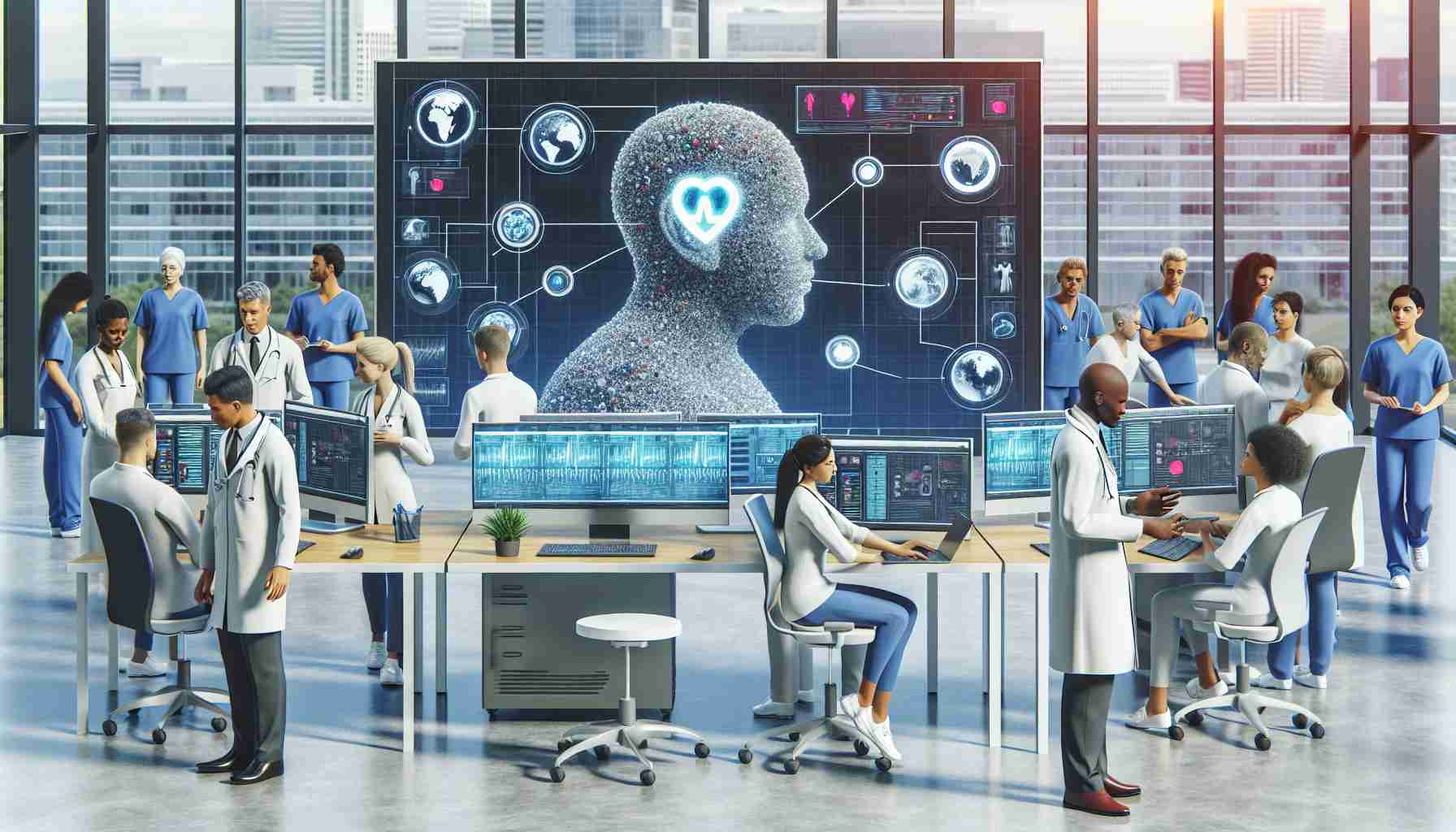The healthcare industry is on the verge of a revolution with the potential of Artificial Intelligence (AI) to transform healthcare delivery, especially in underserved communities. However, the successful integration of AI applications into essential healthcare services requires careful consideration of the needs and perspectives of community health workers (CHWs) who will be at the forefront of implementing these technologies.
A recent study conducted on CHW perceptions of AI-enabled mobile health applications in rural India highlights the critical importance of AI designers and developers having a deep understanding of the deployment context. Unlike traditional research in ICT4D (Information and Communication Technologies for Development), AI technologies introduce new complexities and risks related to fairness, accountability, transparency, and unintended consequences that must be proactively studied before implementation.
One key finding from the study is the necessity for AI developers to plan for potential failures. This involves anticipating errors such as misclassification or infrastructural challenges and implementing strategies to address them. It is important to note that CHWs may not possess extensive AI knowledge or technical expertise, which means they are more likely to accept the outcome provided by the AI system without questioning it. Therefore, developers must actively identify, assess, and mitigate potential failures and their impact on patients.
The study also underscores the significance of long-term sustainability, maintenance, and repair of AI systems. Organizations looking to deploy AI mHealth systems must carefully consider the ongoing support and technical assistance required. CHWs expressed the need for accessible support channels, such as the ability to call the company for assistance. Troubleshooting and maintaining complex AI software may necessitate the continued involvement of highly skilled designers and developers, as local repair ecosystems may not have the necessary tools or capabilities.
Another crucial aspect to consider is the additional workload and burden placed on CHWs when introducing AI systems. CHWs already have heavy workloads, and the utilization, explanation, and justifications of AI tools to their communities add both visible and invisible tasks. The uneven distribution of this workload, with less tech-savvy CHWs spending more time on invisible work, presents a significant concern. AI developers must take these factors into account when assessing the benefits and potential harms of AI systems, and they should provide ongoing training and support.
In conclusion, successfully integrating AI into healthcare requires meticulous planning and consideration of the unique challenges faced by community health workers. By proactively addressing potential failures, ensuring long-term support, and managing additional workloads, AI applications can truly transform healthcare delivery, particularly in marginalized communities.
FAQs
Q: What is AI in healthcare?
A: Artificial Intelligence (AI) in healthcare refers to the use of intelligent algorithms and systems to aid in tasks such as diagnosis, treatment planning, and patient care. AI has the potential to improve efficiency, accuracy, and accessibility of healthcare services.
Q: Why is it important to consider CHWs in AI healthcare applications?
A: Community health workers (CHWs) play a critical role in delivering healthcare services, especially in underserved communities. Considering their needs and perspectives is necessary to ensure the successful integration of AI technologies into their workflows and to avoid potential challenges or negative impacts.
Q: What are the potential failures of AI systems in healthcare?
A: AI systems in healthcare may fail in various ways, such as providing incorrect diagnoses or facing infrastructural challenges (e.g., lack of connectivity). Planning for these failures is crucial to minimize negative consequences for patients and to ensure the reliability of AI applications.
Q: How can AI developers support CHWs in using AI systems?
A: AI developers can support CHWs by providing ongoing training, accessible technical support channels, and maintenance services. They should also consider the additional workload and work distribution among CHWs when designing AI systems, ensuring that the benefits outweigh the burdens.
For more information about AI in healthcare and its potential applications, you can visit Healthcare IT News – Artificial Intelligence.
Industry Insights and Market Forecasts: The integration of Artificial Intelligence (AI) in the healthcare industry has the potential to revolutionize healthcare delivery, particularly in underserved communities. The market for AI in healthcare is expected to grow significantly in the coming years. According to a report by MarketsandMarkets, the AI in healthcare market is projected to reach $45.2 billion by 2026, with a CAGR of 44.9% during the forecast period. The increasing adoption of AI technologies in areas such as diagnostic imaging, drug discovery, and patient care management is driving this growth.
However, the successful implementation of AI applications in healthcare requires careful consideration of the unique challenges faced by community health workers (CHWs) who will be responsible for implementing these technologies. CHWs play a crucial role in delivering healthcare services, particularly in rural and marginalized communities. They provide essential healthcare services and act as a bridge between healthcare providers and the communities they serve.
Issues Related to AI in Healthcare: The integration of AI in healthcare introduces new complexities and risks that need to be addressed proactively. One of the key issues is fairness and accountability. AI algorithms may exhibit bias, leading to unequal treatment of patients from different backgrounds. It is essential for AI designers and developers to ensure that their algorithms are fair and unbiased to prevent any discriminatory outcomes.
Transparency is another important issue. AI systems often make decisions based on complex algorithms that may be difficult to understand or explain. It is crucial to design AI systems that provide clear explanations for their decisions to ensure trust and understanding among CHWs and patients.
Unintended consequences are also a concern. AI systems may generate false positives or false negatives, leading to incorrect diagnoses or treatment plans. Developers must anticipate and address potential failures to minimize their impact on patients and to ensure the reliability of AI applications.
Related Links:
Healthcare IT News – Artificial Intelligence

